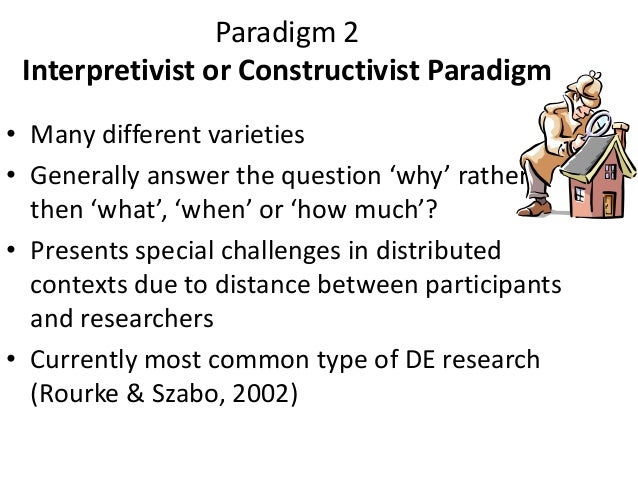Interpretive Research Paradigm Pdf
The Interpretivist Paradigm Assumptions and Beliefs of the Interpretivist Paradigm Interpretivist views have different origins in different disciplines. Schultz, Cicourel and Garfinkel (phenomenology/sociology), the 'Chicago School of Sociology' (sociology), and Boas and Malinowski (anthropology) are often connected with the origin the interpretivist paradigm. The interpretivist paradigm developed as a critique of positivism in the social sciences. In general, interpretivists share the following beliefs about the nature of knowing and reality. relativist ontology - assumes that reality as we know it is constructed intersubjectively through the meanings and understandings developed socially and experientially. transactional or subjectivist epistemology - assumes that we cannot separate ourselves from what we know. The investigator and the object of investigation are linked such that who we are and how we understand the world is a central part of how we understand ourselves, others and the world.
Chapter 4: Research methodology and design 296 through social constructions such as language, consciousness and shared meanings (online). Interpretive paradigm is.
By positing a reality that cannot be separate from our knowlege of it (no separation of subject and object), the interpretivist paradigm posits that researchers' values are inherent in all phases of the research process. Truth is negotiated through dialogue.
- Download PDF. Show page numbers. Interpretive research is a framework and practice within social science. (and a set of paradigms) embedded in different.
- This paper explores the philosophical underpinnings of three major educational research paradigms: scientific, interpretive. Interpretive paradigm.

Findings or knowledge claims are created as an investigation proceeds. That is, findings emerge through dialogue in which conflicting interpretions are negotiated among members of a community. Pragmatic and moral concerns are important considerations when evaluting interpretive science. Fostering a dialogue between researchers and respondents is critical. It is through this dialectial process that a more informed and sophisticated understanding of the social world can be created.

All interpretations are based in a particular moment. That is, they are located in a particular context or situation and time. Frantz magnetic separator operation manual. They are open to re-interpretation and negotiation through conversation. Methodology.

Interpretive approaches rely heavily on naturalistic methods (interviewing and observation and analysis of existing texts). These methods ensure an adequate dialog between the researchers and those with whom they interact in order to collaboratively construct a meanful reality. Generally, meanings are emergent from the research process. Typically, qualitative methods are used. View of Criteria for 'Good' Research Interpretivist positions are founded on the theoretical belief that reality is socially constructed and fluid. Thus, what we know is always negotiated within cultures, social settings, and relationship with other people. From this perspective, validity or truth cannot be grounded in an objective reality.
Multimethodology
What is taken to be valid or true is negotiated and there can be multiple, valid claims to knowledge.